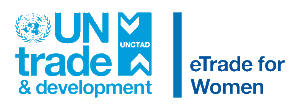
Things that impress us when we are children have a way of coming back later in life. For Mawuse Gyisun, that is exactly what happened.
The co-founder and COO of Sommalife in northern Ghana told Trade Forum how, from a young age, she encountered hard-working women who tried to make a living as farmers but had nothing to show for it.
According to Sommalife, over 16 million women smallholder farmers are engaged in the production of raw shea commodities in West Africa for global food and cosmetic manufacturers. These women are the backbone of the economy, creating billions of US dollars in revenue, yet they live in poverty on less than $2 a day.
Through her social enterprise, 31-year-old Mawuse offers better lives for over 150,000 women (and counting) in the shea value chain by digitizing their work, connecting them to markets, and preserving the indigenous species of shea trees.
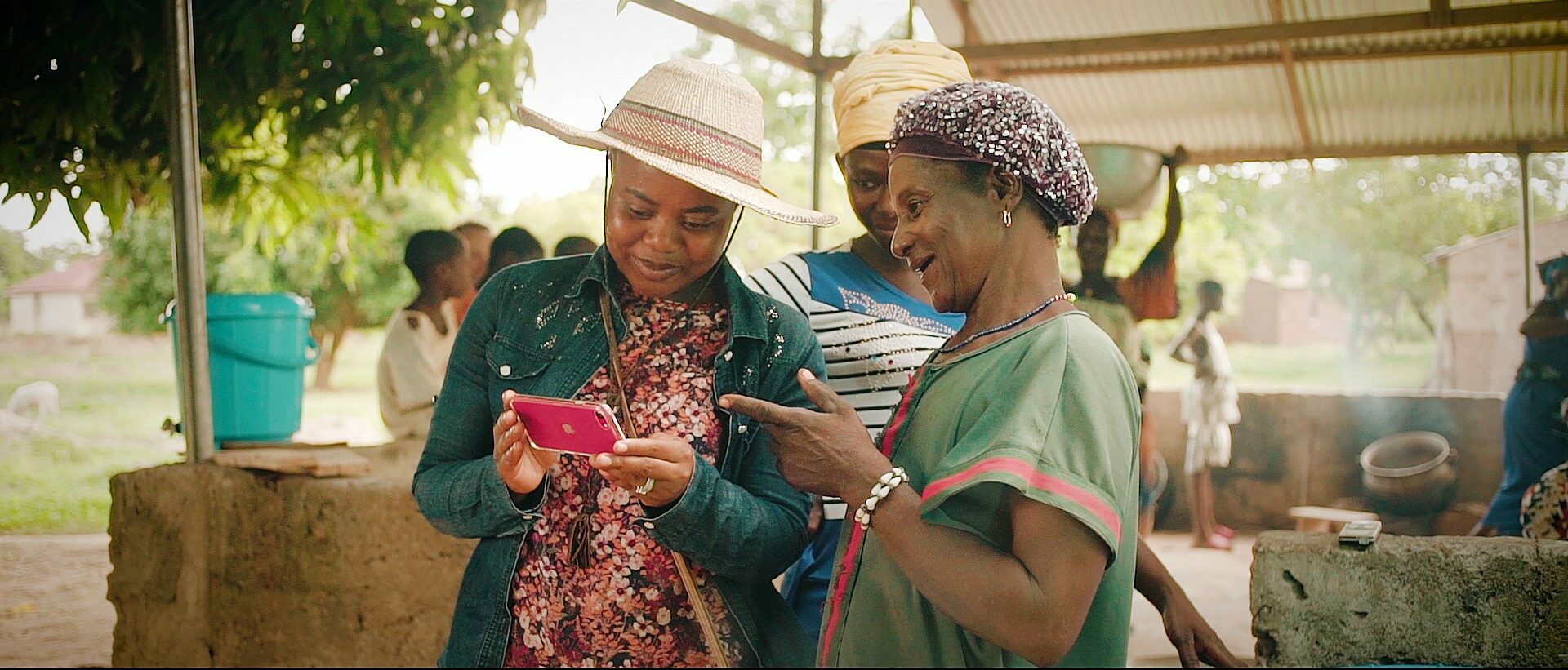
From the age of nine, Mawuse Gyisun was sent to sell produce at the local market in Wa, in the Upper West Region of Ghana. What her young eyes witnessed disturbed her – she saw the hard labour of women farmers who had to walk 25 km each way to reach the market, returning home with almost no profit in their pockets.
The women encouraged young Mawuse to finish school, so that when she grew up, she could return and help them. In many countries, education remains the key to escaping poverty.
“This first encounter planted a seed of passion in my heart. It also allowed me later in life to shape my understanding and inspiration for what I do now.”
Following an entrepreneurial path...
After high school, the young graduate wasn’t sure where her life should take her. She was interested in health and nutrition but decided to major in integrated development studies to inspire positive change in communities.
After her studies, Mawuse worked in remote villages for development agencies like GIZ and consulting firms like GOPA AFC, to train them on good agricultural practices for better yields and market linkages. This meant accompanying women to their farms, eating and interacting with them.
“That reminded me of early conversations with women farmers when I was a child. I was inspired. I was obviously drawn to their needs.”
During that time, Mawuse helped women farmers with budgeting, while connecting them to markets and training them on climate-smart agricultural practices. They would often complain about the various challenges they faced in the different value chains of cash crops, particularly soybeans and shea.
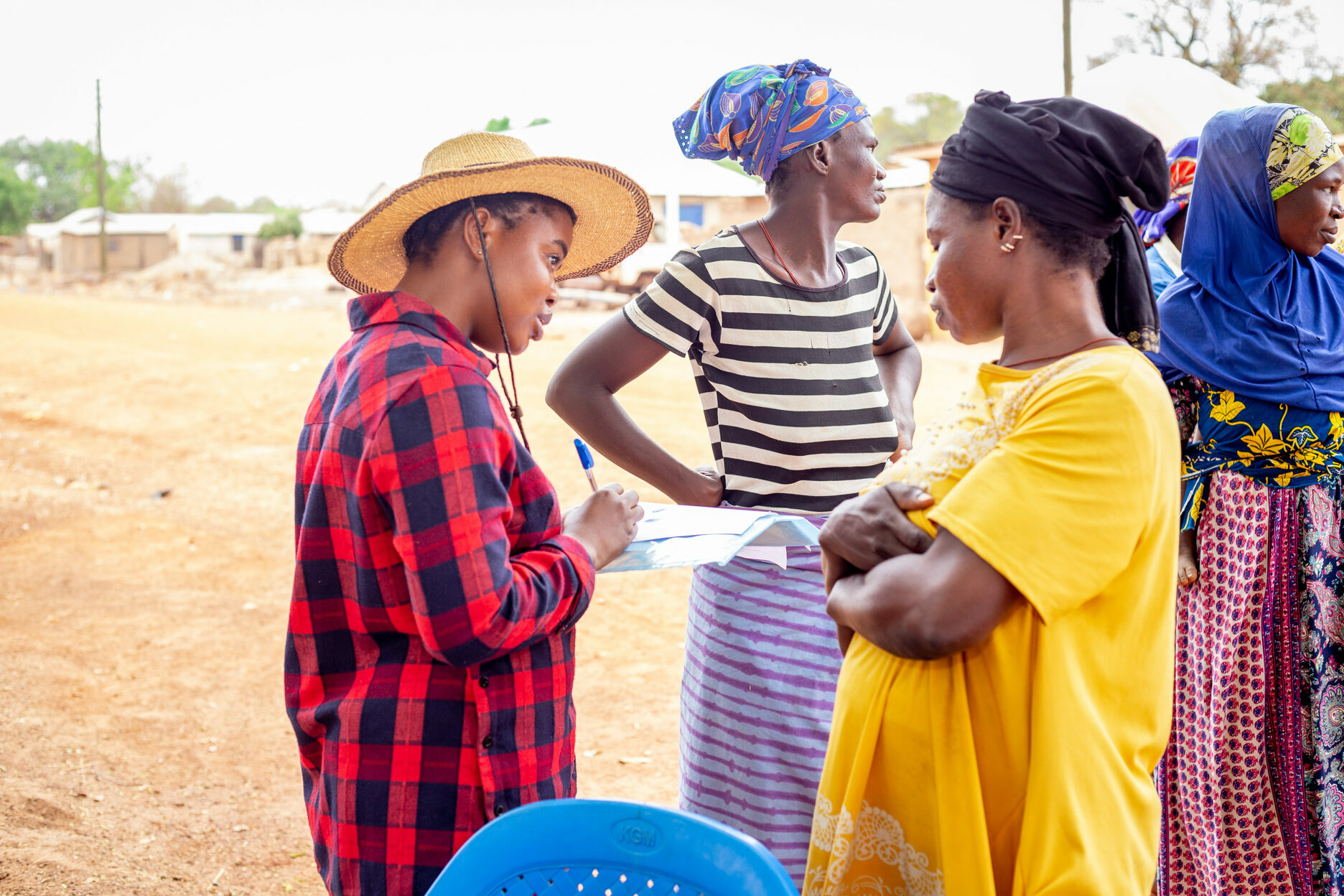
"Each value chain has its own problems. As a woman, I felt it was my obligation to contribute to a value chain that could make the biggest difference for the women."
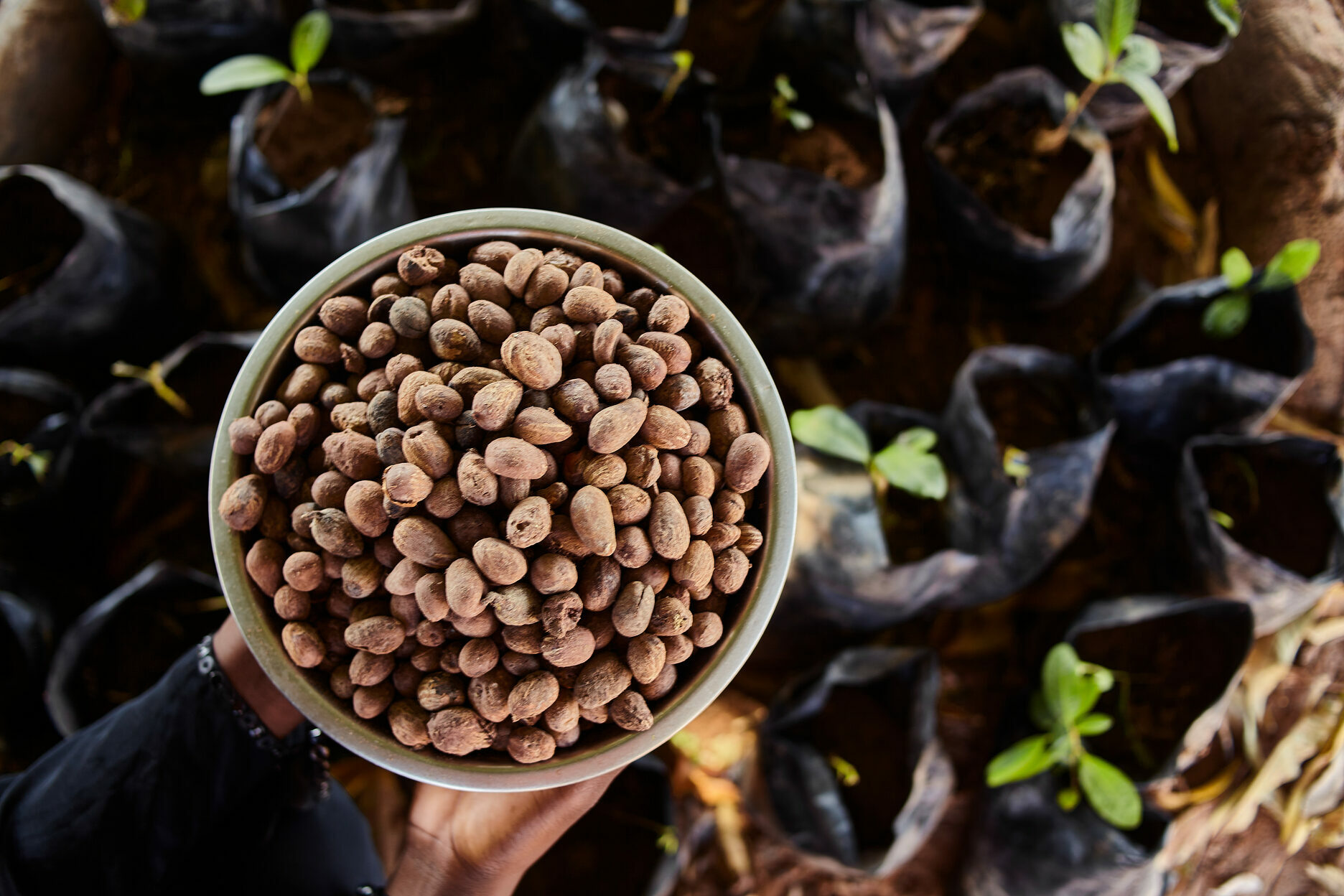
In 2019, Mawuse helped a group of women smallholder farmers sell their shea butter to buyers in Norway, who paid an above-average price. The shea butter industry has increased drastically over recent years, due to the growing demand by pharmaceutical and cosmetic industries.
In the northern region of Ghana alone, shea trees support the livelihoods of around 900,000 rural women living in poverty.
After the success with Norway, Mawuse’s friend John Carl Dunyo – now the co-founder and CEO of SOMMALIFE – suggested that they officially register as a business and take it a step further.
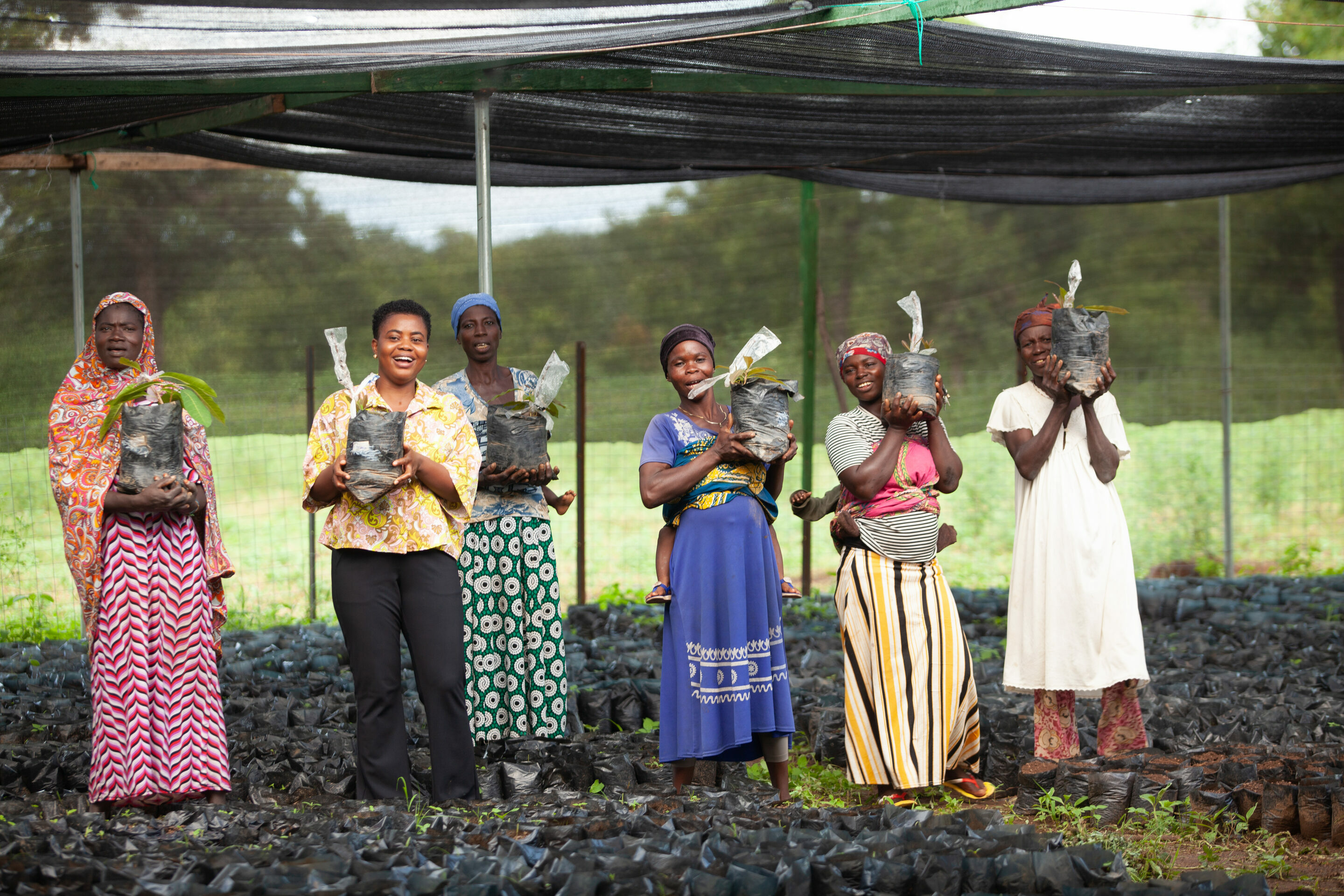
…despite the challenges
During the COVID-19 pandemic, the two ambitious start-up leaders used the time to analyse which factors contributed most to the many disadvantages farmers faced within the shea value chain.
For instance, the farmers had to rely on intermediaries and the local market to sell their produce, leaving them with little or no profit. Luckily, global food manufacturers are increasingly interested in tracing their commodities back to individual farmers.
Farmers also lose substantial oil from the nuts during the shea butter production process due to their traditional, manual methods, which only typically yield about 20% of the nuts’ oil content. In contrast, global food manufacturers use technologies that increase extraction rates to around 45%. That means they often prefer to buy shea nuts from farmers and handle the extraction themselves instead of buying the shea butter from the women.
“To unlock premium prices for shea, we help farmers combine the sales of the nuts with that of the butter. When you digitize their work, you can for instance store the nuts and sell when the price is attractive. We also make sure they meet the reporting requirements of the global buyers.”
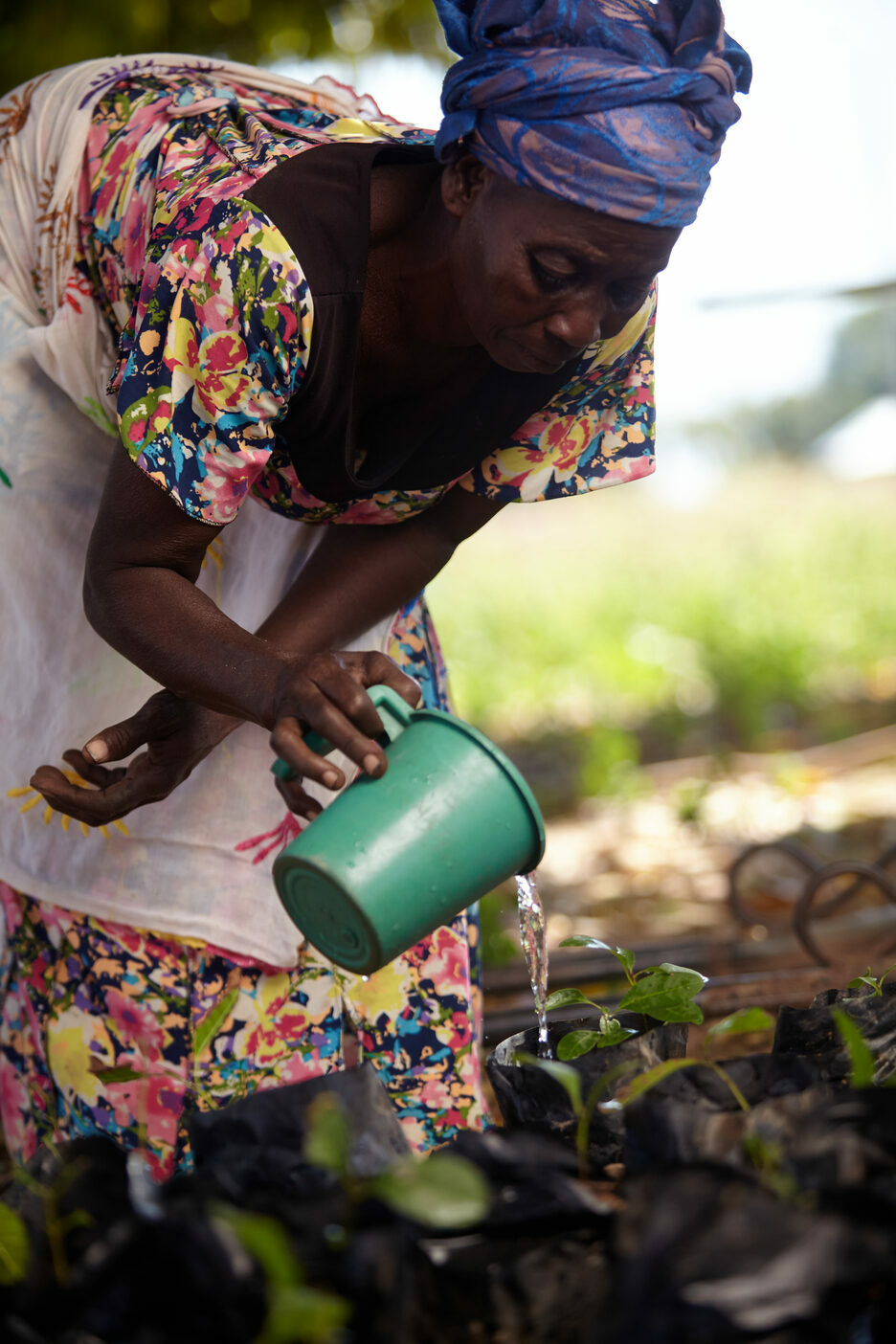
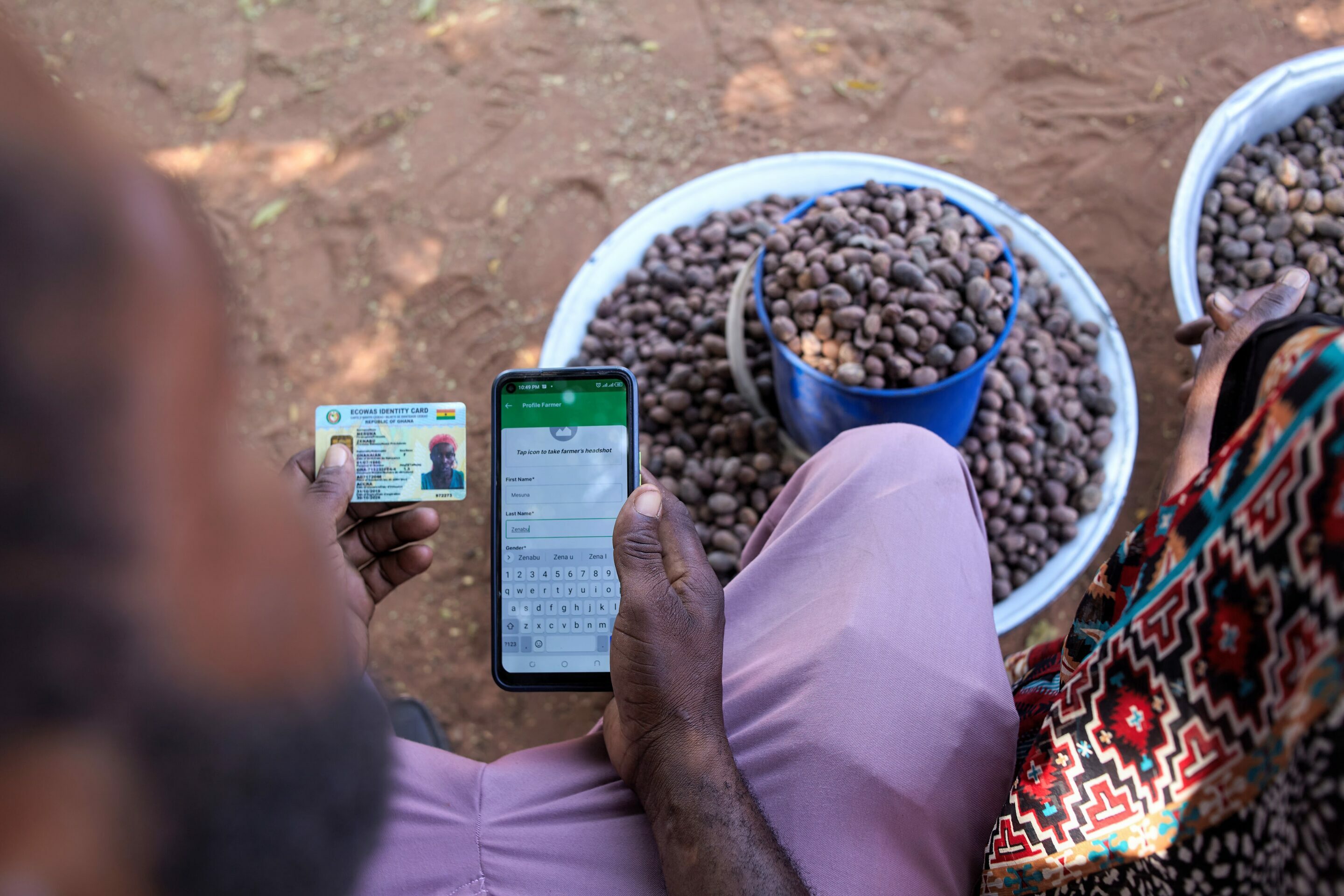
A closer look at Sommalife
Sommalife is a social enterprise using modern technology to support sustainable incomes and create impacts in rural communities. The company’s vision is to eliminate the gap between stakeholders in the shea value chain while offering transparency and traceability.
Sommalife has so far helped over 150,000 farmers digitize their operations (only 14,000 of these are men). Today 25,000 more women are connected to markets, where they receive a price that is 22% higher than that offered by the local market.
“There are 60 million women producers in the shea value chain in West Africa. We realized that they remain poor because they don’t have sufficient resources to meet international standards in terms of quality."
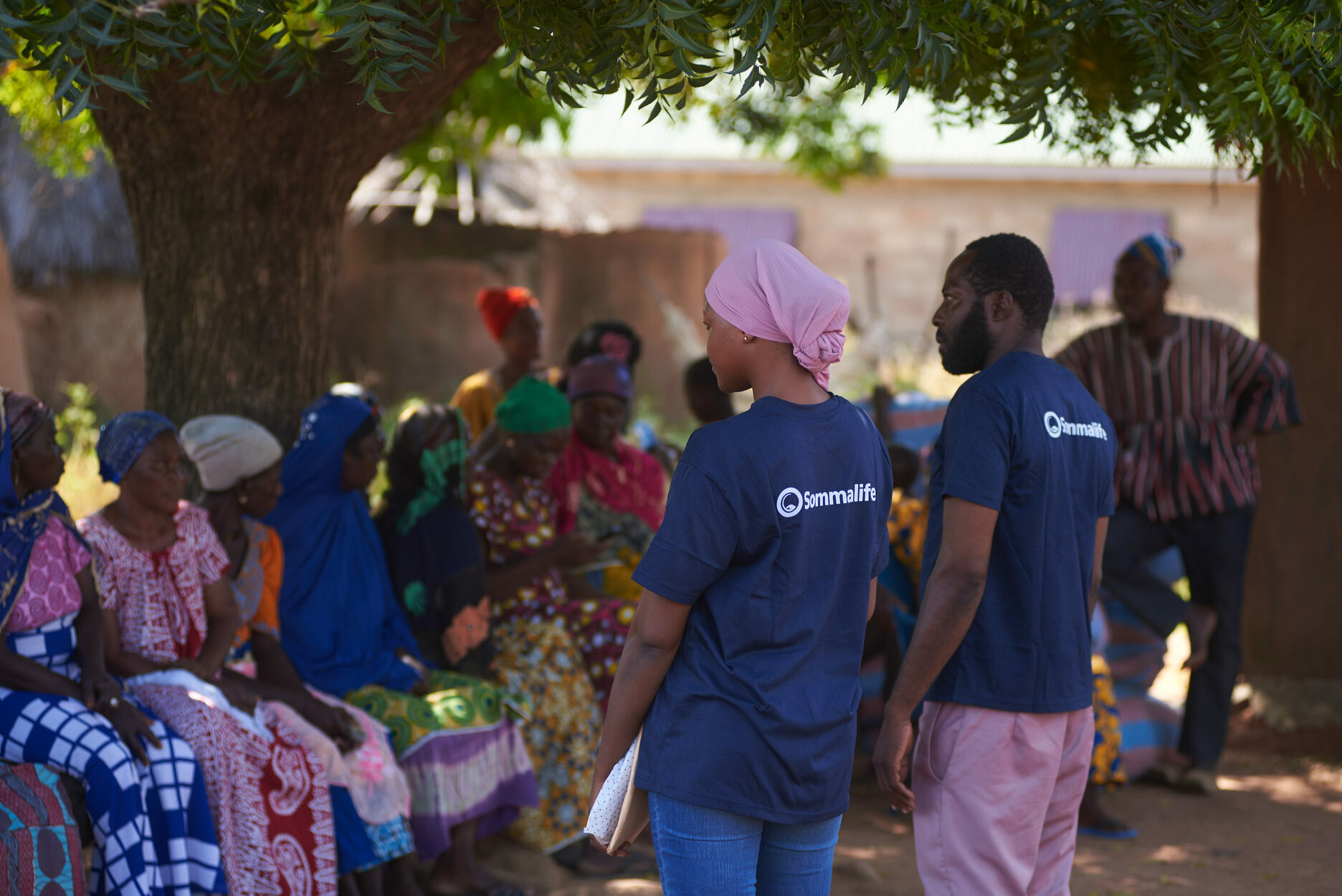
"If we combine market access, digitization and conservation actions, we can secure their livelihoods and meet the sustainability demands of the buyers.”
Through their software, Sommalife collects the socioeconomic data needed for international trade: on the products the farmers are producing, the trees they are managing, and the training they receive.
Indeed, the indigenous shea trees are under threat, as they provide 80% of the charcoal used in Northern Ghanaian households. Sommalife transplants shea trees to sparsely populated areas to protect them from deforestation.
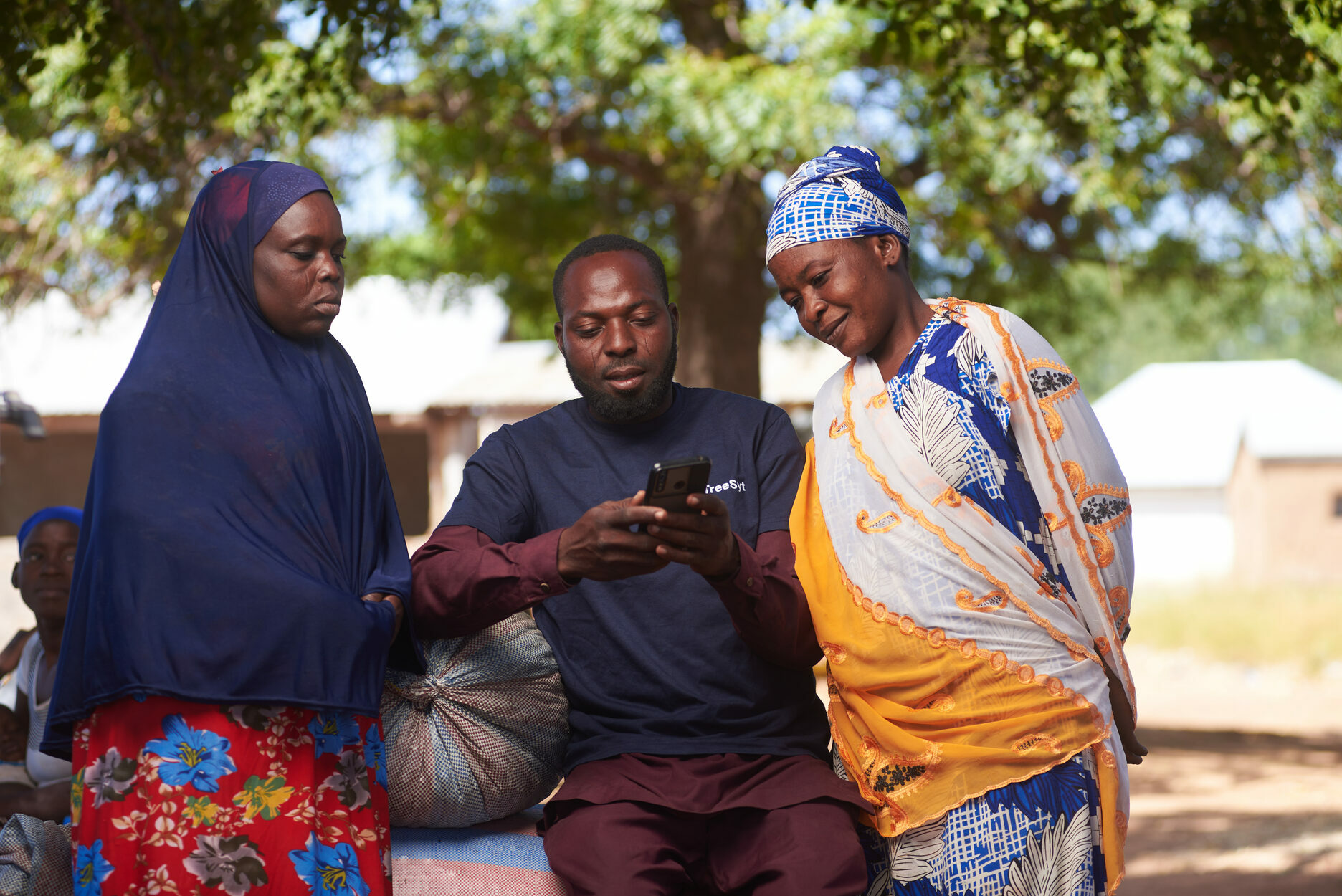
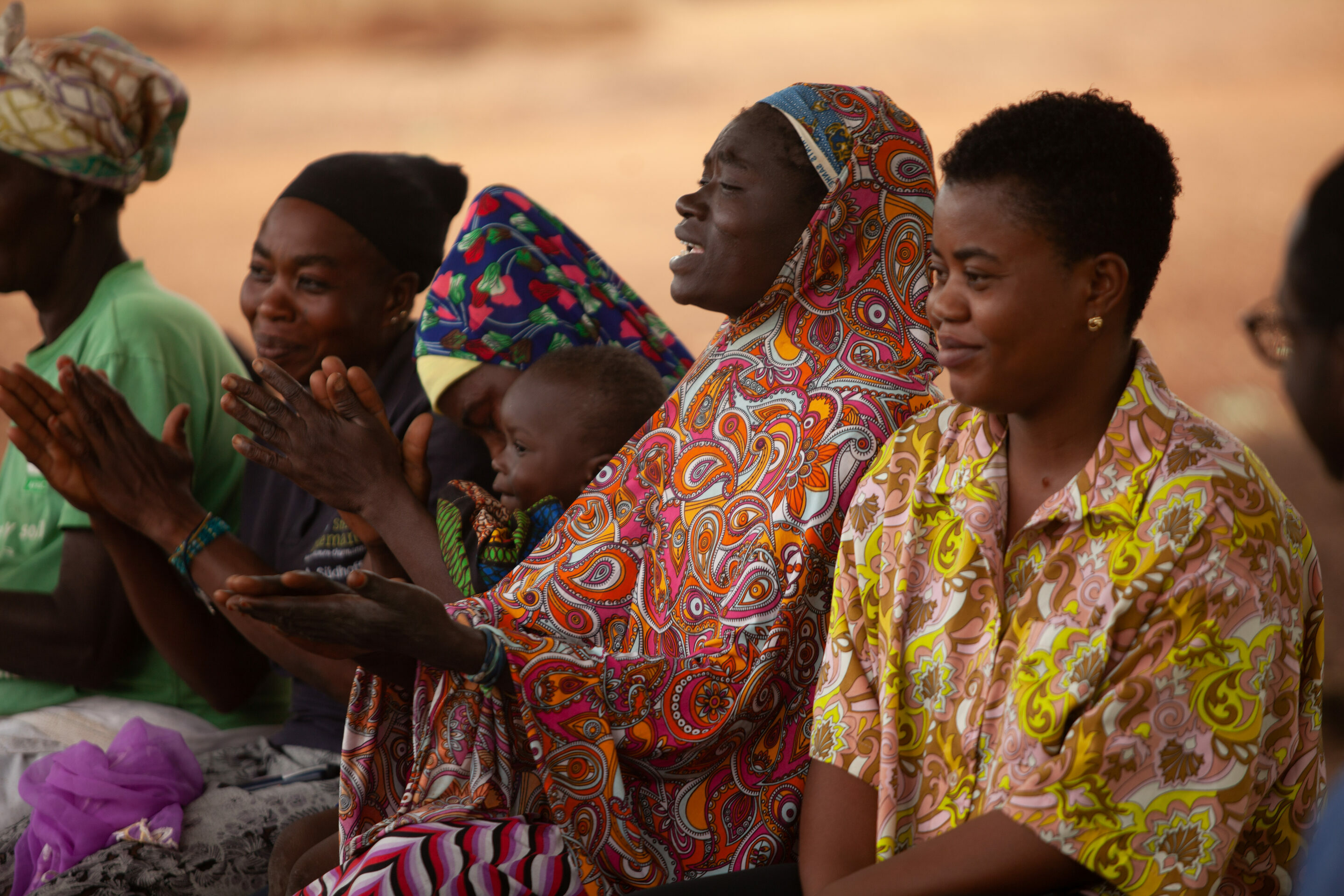
The impact is profound – and real
To understand the impact of their work, Mawuse hired a third-party firm for an impact assessment with great results: four in every five farmers have reported an increase in their earnings and an improved quality of life.
Among the households affected by the extreme weather patterns in 2023 due to climate change, seven out of 10 say that Sommalife has improved their production and 80% have confirmed price fairness.
“It makes me happy to see the appreciation of the women, but I wanted to make sure it was real. I am glad I can be useful for my community, and I feel I am living up to my promise to the women I met as a child.”
Sommalife is now including the soybean and maize value chains to expand its reach to more farmers. The company is also looking to set up more partnerships with organizations who plan to pursue value addition activities, as well as partnerships in technology.
“Some of our farmers don’t have fingerprints anymore – they are worn away due to all the hard labour. NFC-enabled devices are a solution, but they are very expensive. You must get a license, the clearance for the import – there is no system to receive benefits or subsidies for this type of equipment. If we have partnerships, we can deploy the technology with the help of the established communications networks -for instance, we are currently working with MTN (Africa's largest mobile network operator) to integrate mobile money payment to farmers in our software application. More partnerships with agritech companies would help us.”
The results so far motivate Mawuse and her team of 100 employees to aim even higher: by 2030, they want to lift 1 million farmers out of poverty and expand into other markets like Côte d’Ivoire.
Mawuse’s advice for fellow entrepreneurs
“You don’t need all the answers before you start. You are likely to face adversity and doubt your abilities. Let that fuel you on your drive. You can cry about it. Hit the road the next day as if it never happened.”
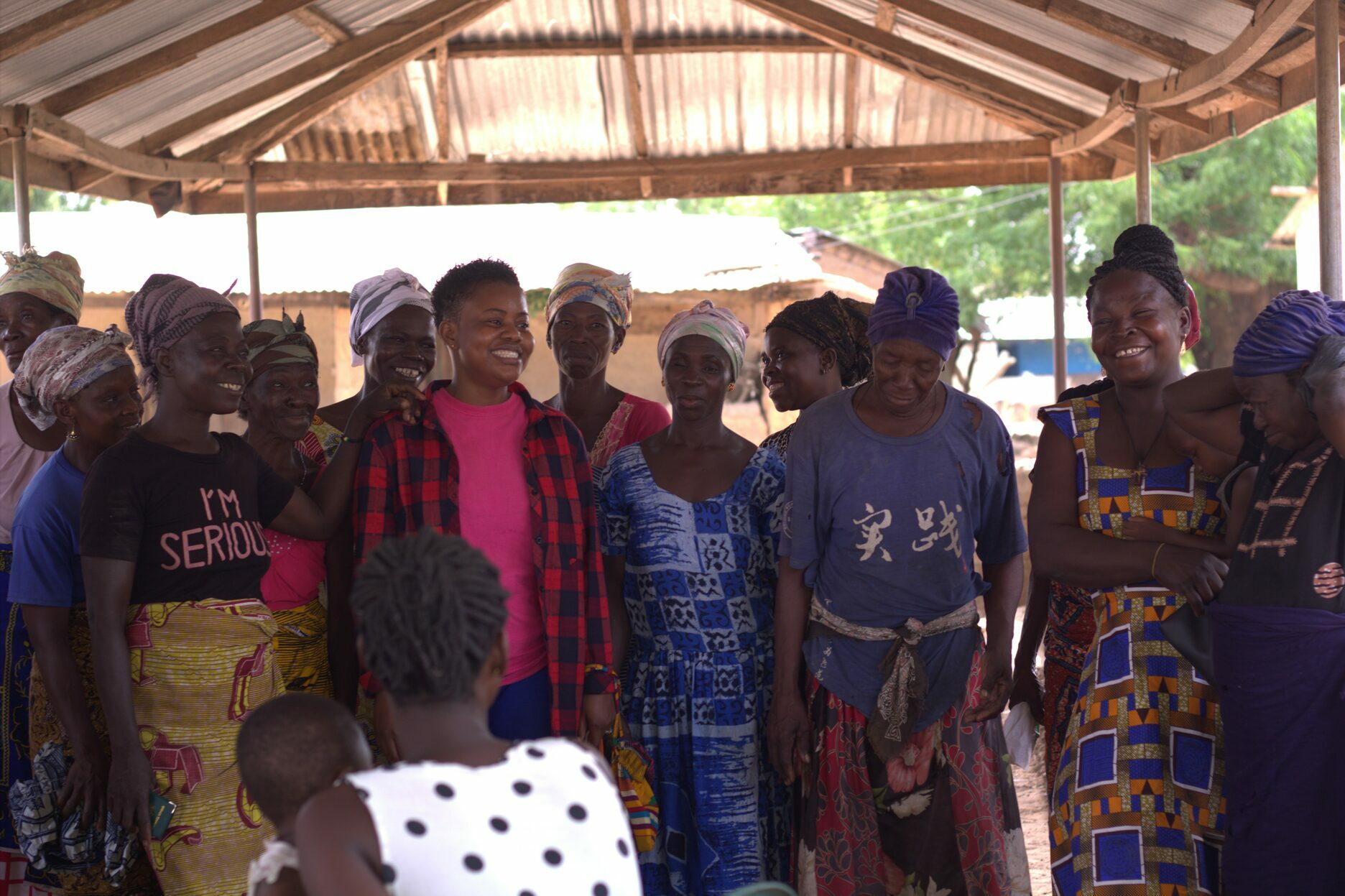
Of more than 400 applicants, Mawuse was one of the top six finalists of the International Trade Centre’s 2023 Youth Ecopreneur Awards. She received training from ITC and WIPO, benefited from pro bono support from Sidley Austin and Google, and pitched live at the World Export Development Forum in Mongolia.

